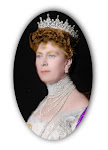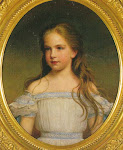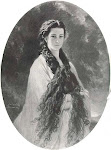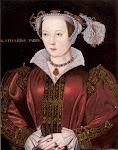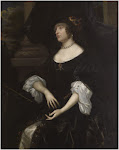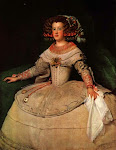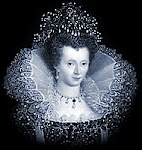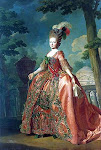
The Abdication...have you heard of it?
.
.
In 1936, King Edward gave up his throne for the woman he loved. If she couldn’t be crowned with him, at his coronation, then he would not be crowned either.
.
.
And that was that. And there would be no arguments about it.
.
.
He was determined to marry Wallis Warfield Simpson and have her by his side. He couldn’t live without her--he really couldn’t. She was as necessary to his existence in 1936 as was food to living. And he said he would not be crowned with a lie on his lips.
.
.
As you may know, there has been endless speculation, and there still is...what was it about her that captured the Kings heart? But I wonder...did she want to be Queen? Or be kept as the Kings favourite? Yes, I think so—to both questions—at least for a time.
.
.
As events heated up in their relationship, the Prince’s brother Bertie, who was next in line, was in shock. His wife Elizabeth was not only in shock, she was angry. Her husband had never been reared to be King. He had not been trained for it. His personality wasn’t suited for it and he relished their private life together, and his time with their young daughters. This couldn’t be happening. WHO was this American, divorced woman? Well, The Duchess of York hadn’t cared for Wallis for quite some time! One reason for that was... one afternoon as she was leaving a room, Elizabeth suddenly turned back to look, and found Wallis making fun of her while there were others in the room. It hurt Elizabeth deeply. There was no love lost between she and Wallis. But she cared for David. Why would he throw it all away? No one in the family could believe that he would dare do it. It was just desperation speaking. Queen Mary, the King's mother, paced back and forth at Marlborough House. To even hear the word 'abdicate' mentioned...or to think of it, however fleetingly, was more than the Queen could bear.
.
.
As you can see, she wasn't a raving beauty, but she did have fashion sense and dressed rather smartly. And because she was southern and born in America, she had grown up with a sort of southern charm in her genes and she had the ability to make guests feel very comfortable and relaxed, when she felt like it.
.
.
She really didn’t like England. At least when she first moved there, she didn’t. Oh, the dirt that came through the flat windows…especially when there was fog. Everything would have to be cleaned, even the drapes. And it rained. And she missed her Aunt and mother.
.
.
So...let's continue with the Abdication story---so I dont confuse you. We'll start at what happened before the crisis. I'm doing this from memory because I really don't feel like reading at the moment. Maybe later I'll get their love letters and add in a little of them.
.
.
Wallis, a young American woman, was divorced after a turbulent marriage with Win Spencer. He was quite abusive. Not many women left their husbands in the 1920's and 1930's –so it shows what kind of a woman she was. She wanted to live. She wanted to enjoy her life. But...she also worried often about stability and money. There never seemed to be enough, and she had anxieties about it…quite a bit of anxiety.
.
.
After her separation and divorce, she enjoyed herself and spent many evenings with the young political people of the day near Washington DC, and the up and coming in society that associated with them. She attended parties, dinners and was always in demand. For quite awhile it amused her. But eventually she got tired of it all. Time was passing by. She was young now, but what would she do later on? How would she support herself? She needed to protect herself. So, when she met Mr. Ernest Simpson at a party and he took a liking to her, she was sort of thrilled...in a quiet sort of way. He was a businessman, and his prospects looked good. Most of all, he was kind and polite and the two of them got along well. He looked after her welfare.
.
.
Well, she did it. She married him and settled herself in a London flat. Ernest worked for the family business and he worked very hard. Wallis stayed home and took care of the house, except in those days...couples who made "enough" money hired a cook and housekeeper. So Wallis did that, and kept herself busy with letter writing, shopping, consulting with the cook and watching to make sure there were no dust bunnies under the couch. And I mean it. She would not tolerate that. She worked fastidiously to decorate the flat. Everything had to be just so. Everything was placed in the rooms to look its best. She wasn't rich, but her flat was comfortable and rather pretty. She had good taste. She arranged flowers very beautifully, and often there was a bouquet on the piano. Her favorite bric-a-brac was stragetically placed on tables in her drawing room. Not only was she good at decorating, she enjoyed it.
.
.
She was bored though. One of her friends in England---Consuelo Thaw---was the eldest sister of Gloria Morgan Vanderbilt and her twin sister Thelma Furness. Consuelo's husband was a diplomat that Wallis had known in the States. So there were luncheons and introductions to new friends in Consuelo’s circle….and there was always a friend or two passing through England to keep Wallis busy. And Consuelo's sisters were famous---Gloria was famous, obviously, because she married a Vanderbilt, and Thelma...well, she was the Mistress of the Prince of Wales.
.
.
Wallis kept busy interviewing cooks and housekeepers because they seemed to come and go quite often. It was hard to get good help. As her circle of friends grew, she found that she enjoyed going out for evenings at the theater. Just as importantly, she was becoming a good hostess as well. Her dinner parties were fabulous, the food delicious, the conversation exciting. Wallis had a knack for that. She'd give a lot of thought to her parties...who to invite...who should sit where...what couples would mix well… what would be appropriate to eat and what was in season...nothing was left to chance and and best of all, she loved surprising her British friends and Ernest's business associates with southern dishes that they'd never had...such as crispy fried chicken or ribs. Her party invitations began to be coveted.
.
.
As her friendship grew with Thelma little by little, she implemented something else...the cocktail hour! For an hour or two her door would be open, and everyone was welcome to drop by for a cocktail and some chit-chat. This was something done in America, but not in England. Society was curious. And Wallis enjoyed the fact that she was climbing up the ladder. Ernest was happy to see her happy. Wallis continued to write home to her mother and her (rich) Aunt Bessie about these events in her life. Often Wallis mixed the cocktails herself in shakers. She'd also serve hot and cold canapes--grapes stuffed with cottage cheese and biscuits with meat. What she served was different...unusual. And she didn't mind spending time in the kitchen making sure things were being done properly. The well to do English housewives of the day would never consider doing such a thing. But Wallis knew what she wanted and eagerly watched over the preparatons by the cook. Her guests noticed that.
.
.
And then IT happened. Wallis and Ernest were invited to spend the weekend with the Prince of Wales and his other guests, at Fort Belvedere, which was the Prince's favorite residence. It was usual for him to have weekend get-togethers with select friends and couples . Depending on the time of year there would be gardening (his favourite!) , swimming, hikes, card games, bag-pipe playing by the Prince and delicious, hearty meals in the evening, sometimes followed by bridge or dancing. (He also loved needlepoint--Queen Mary had taught him that. Many a guest walked in and their jaw dropped.) The Prince wasn't a big lunch person--dinner was the big deal. It just so happened that a couple needed to drop out at the very last minute on that particular weekend, and so the invitation (or summons) was extended to Wallis and Ernest. They were thrilled, to say the least.
.
.
Over time...the visits became more frequent. It took some time for that to evolve. It evolved naturally and slowly over a period of time...well over a year's time. The King liked Wallis and Ernest, and even came to their flat for dinner. And more time passed...while Wallis just soaked in the excitement of it all, sharing her news home in letters. She was becoming closer friends with Thelma Furness, who was the Prince's girlfriend. She hob-knobbed with aristocracy and some of society's best. She shopped for the best deals on clothes and food.
.
.
You have to realize that the Prince of Wales, in 1934 to 1936 was a handsome man, with boyish good looks, and golden hair. Women loved him from afar. He had traveled the world. There was a charisma about him—an excitement. He was dashing—and a daredevil. His parents were never too happy with him. King George and Queen Mary wished he would settle down and stop his night life...and they didn't approve of some of his "fast" friends, which were called the "Prince's set". He was known as David in the family, and David knew that his parents disapproved of much of his lifestyle. The King said privately, “That boy will ruin himself within a year once I am gone.” However, the Prince was extremely popular with his subjects.
.
.
One day as Thelma and Wallis were having lunch, Thelma asked Wallis to do her a favor. Since Thelma was taking a steamship to the states soon, to be with her sister Gloria, she asked Wallis if she would "take care of the little man," and "make sure he doesn't get into any mischief." Wallis said yes.
.
.
I can't tell you if it was her "southern hospitality" or openness---or if she had something else in mind---but within days of Thelma's departure, the Prince was a fixture at the Simpson's Bryanston Court flat. Wallis and the cook were pulling their hair out. It was costly to have him there. Everything needed to be perfect and clean—and add in flowers, good food, new dresses---and cook always had to prepare something extra. Wallis never knew if His Royal Highness would be stopping by just for a cocktail, or if he would agree to take pot luck supper with them. Often HRH jumped at the chance to share their "pot luck" dinners. (Obviously Wallis told the prince they were 'pot luck" but in reality Wallis knew exactly what was being served and there was plenty made!) Ernest was often tired when going to work the next day, due to many of the late hours they were suddenly keeping. Wallis's nerves were on edge--this pace was maddening. She had to oversee each and every detail, and take care of her appearance.
.
.
It was obvious that the Prince enjoyed Wallis's company. She talked to him---actually conversed with him and gave him her opinions. Usually, he got responses from most people such as "How wonderful for you, sir " or "Very nice, sir." But Wallis was different. She'd ask him about his day. She listened to him and would ask him questions. She could see he was attentive to her and instinctively she knew he needed attention. Was it her that he wanted, or what she gave him...which seemed to be genuine understanding? On occasions, she spoke her mind, too, if she thought he was wrong. He enjoyed it. He wasn't used to being told he might be wrong. This was new and stimulating. And this was new to her too and very thrilling. Who wouldn’t be thrilled by such attention?
.
.
While Thelma was gone, Wallis became his unofficial hostess, and she and Ernest accompanied him to nightclubs or the theatre in London. Sometimes Wallis went by herself due to Ernest's schedule. After awhile, it become customary that when the Prince was at the flat, at a certain time, Ernest would excuse himself and say that he had work to attend to, or he needed to go to bed because of an early day ahead. What was Ernest thinking as he left them alone? As a subject, we know that he was devoted to his future King. As a husband, I fear he was uneasy.
.
.
There was also an uneasiness in society. As they got to know Wallis better—or rather, as Wallis was thrust in their face—they found her voice and laugh irritating and grating, and they felt she was brash and genuinely unsuitable to have such access to the future King. "Typically American," they whispered. What could His Royal Highness see in such a person? At this point the whispers were just among the well to do.
.
.
And Thelma...well, she did come home. There was a suitor, the Aly Khan, who had been attentive to her while she was away, and the Prince had heard about it. You have to wonder...did he really care? Clearly, he was besotted with Wallis, laughing at her jokes, watching her closely, loving her American ways and enjoying being near her. When Thelma returned to England, and she saw the Prince again at The Fort, she reported that he was rather aloof. He wasn't rude to her...he just wasn't the same. Her instinct told her something was not right. Later that evening during dinner she watched a scene which must have made her heart fall to her stomach. Wallis was leaning in to the Prince and laughing, and when the Prince picked up a piece of lettuce with his fingers, she playfully smacked his hand. In shock, Thelma saw this and knew that you did not take those sort of liberties with royalty. And then Thelma says Wallis looked in her direction, and looked at her intently and Thelma has said in her memoirs that it was then that she "knew Wallis had taken very good care of the little man."
.
.
Wallis always maintained that was simply untrue. Wallis claimed that she never did anything but try to be kind and friendly during a time when the Prince was lonely. But by now, even Wallis knew there was more to "David's" feelings than just being a little lonely...she knew he was attached to her...even needed her.
.
.
Her Aunt warned her in her letters to be careful, saying that nothing good could come of this. Aunt Bessie warned her that someone would be very hurt. Wallis dismissed it. Ernest Simpson called the whole thing "Wallis in Wonderland." Up until now, Ernest was usually by her side in public, but how long would he be able to do it? How long would this go on? People were talking. And what would happen to Wallis once she was discarded? She would be discarded, wouldn't she? After all, she was a married woman. Ernest worried about Wallis’s state of mind and what would happen to her once the “fairytale” ended. He didn’t want her to be hurt, yet he didn’t want to stop her from enjoying this once in a lifetime thrill.
.
.
Wallis was excited, yet nervous and loosing weight and having stomach problems. The Prince called everyday, and he was demanding her attention. He wanted her at the Fort and at Ascot. He wanted her opinion on his households and her help. But she was married, and couldn’t just give the Prince all her time. She was married, after all. She could tell Ernest was edgy. Was he upset with her? She vowed to herself that somehow…somehow…she would try to give each man the attention they craved. Sooner or later, the Prince would tire of her. Shouldn't she try to enjoy it while she had the chance?
.
.
And then…
.
.
This writer of queens got tired, and so I will finish the story another day… 









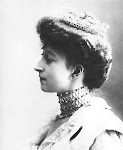

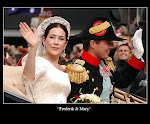


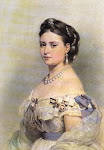
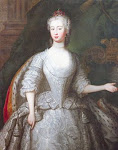
+Mary++Princess+of+OrANGE.jpg)


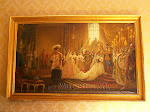


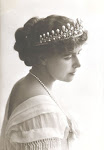
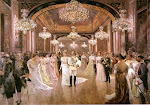








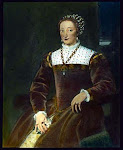


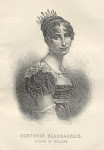



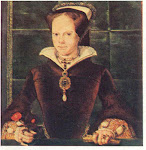
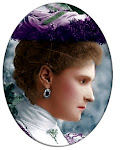

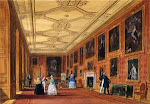



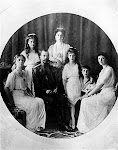

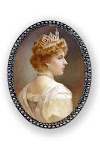

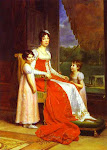

.jpg)
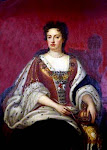

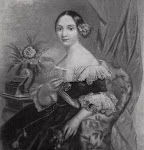
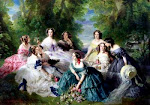

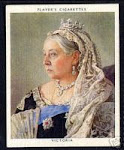
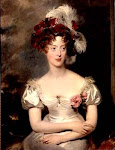
.png)
